Urban Planning, Green Cover and Bio Diversity
Electricity Consumption in the City
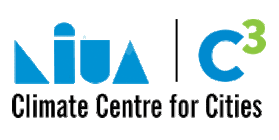

 Urban Planning, Green Cover and Bio Diversity
Urban Planning, Green Cover and Bio Diversity
 Energy and Green Building
Energy and Green Building
 Mobility and Air Quality
Mobility and Air Quality
 Waste Management
Waste Management
 Water Management
Water Management
Urban Planning, Green Cover and Bio Diversity

| Ahmedabad Gujarat |
||
| Heat Action Plan |
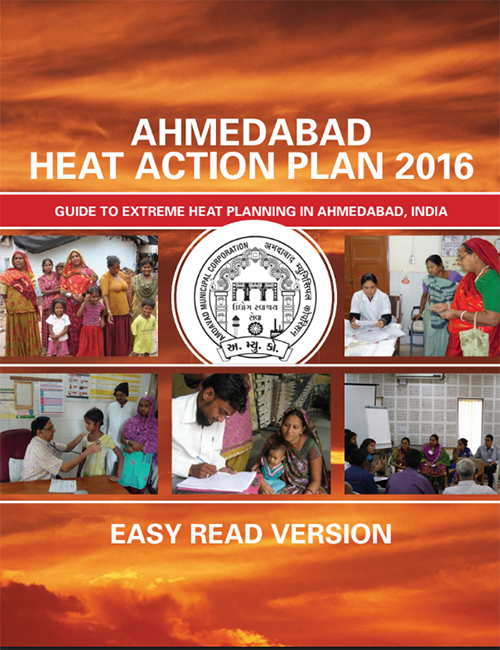
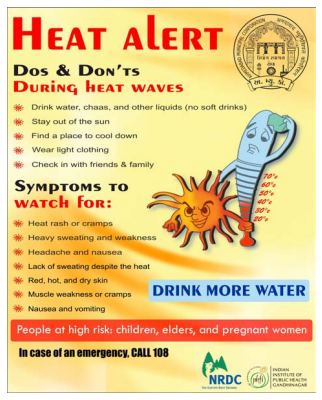

|
|
Ahmedabad heat action plan is the first comprehensive early warning system and preparedness plan for extreme heat events in India launched in 2013 and updated in 2016. The Plan creates immediate and longer-term actions to increase preparedness, informationsharing, and response coordination to reduce the health impacts of extreme heat on vulnerable populations. |
||
| Vijayawada Andhra Pradesh |
||
| Greenery Development on Vijayawada Hills |

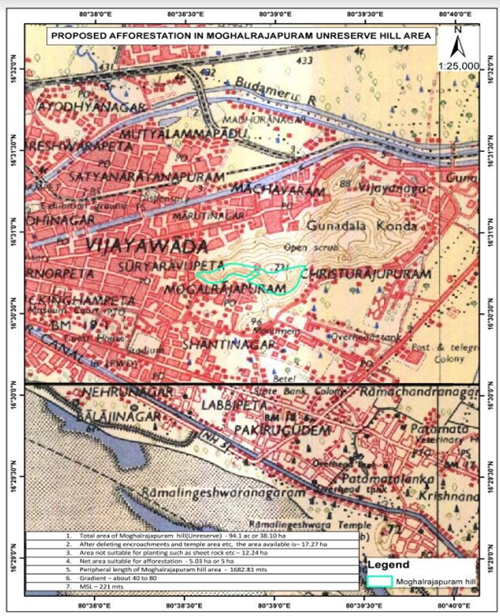
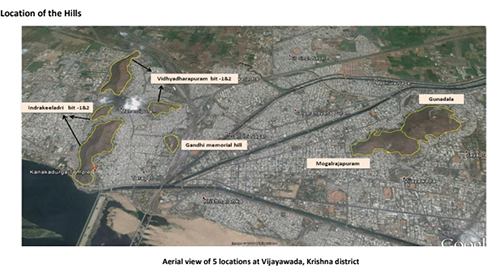
|
|
Vijayawada has prepared a strategy for converting a dumpsite into Model Park at Ajith Singh Nagar and allocated Rs.2.37 crores for the same. The city has prepared a detailed project report for Greenery Development on Vijayawada Hills with the objective of conserving all open spaces and hillocks withing the city. |
||

| Thane Maharashtra |
||
| The Green Thane |
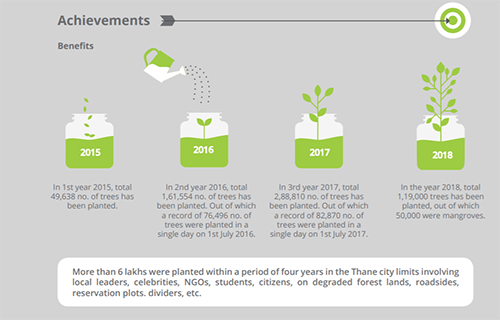
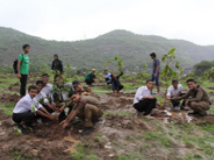
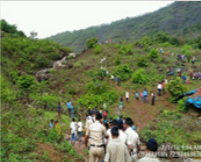
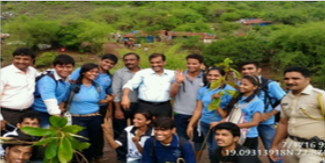
|
|
The Green Thane initiative, implemented between 2015-18, focused on a plantation drive and regeneration of degraded forest cover within the city limits. The co-benefits included recharge of ground water table to deal with water scarcity. |
||
| Agra Uttar Pradesh |
||
| Action Plan to increase Green Cover |


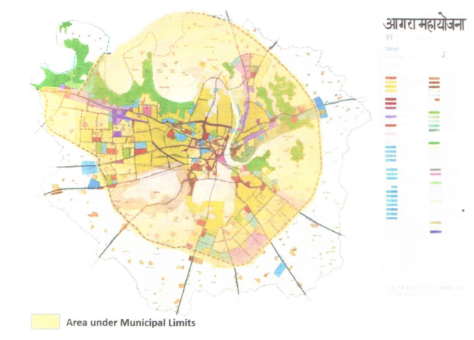
|
|
The city of Agra has prepared an action plan to increase green cover in the city by 15%. The action plan includes current status of green cover and assessment of the master plan of the city to devise long term strategies for increasing green cover. |
||

| Kochi Kerala |
||
| Local Biodiversity Strategy and Action Plan (LBSAP) |
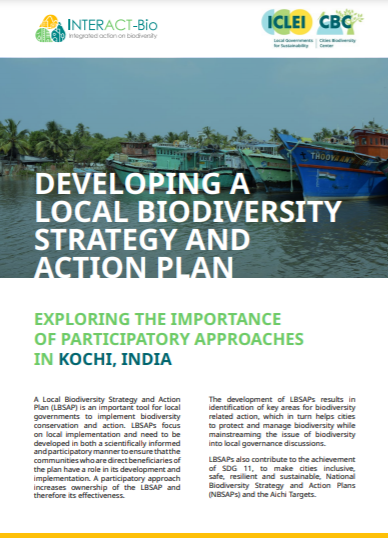
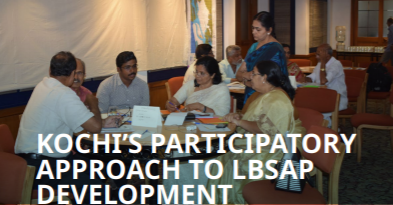
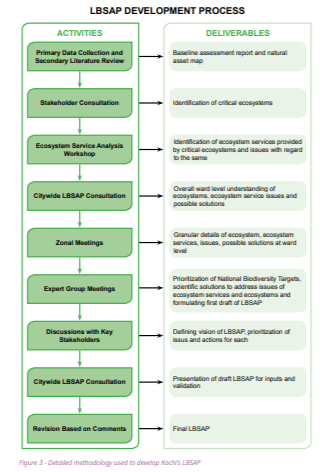
|
|
Kochi has developed Local Biodiversity Strategy and Action Plan (LBSAP) which allows the municipal corporation and other departments along with the local community to work together and deliver continued action for biodiversity stewardship. It includes the city profile, institutional and legal framework, actions and strategies, and its linkage with national and state objectives for biodiversity conservation. |
||
| Shimla Himachal Pradesh |
||
| Multi-Hazard Risk and Vulnerability Assessment (HRVA) |


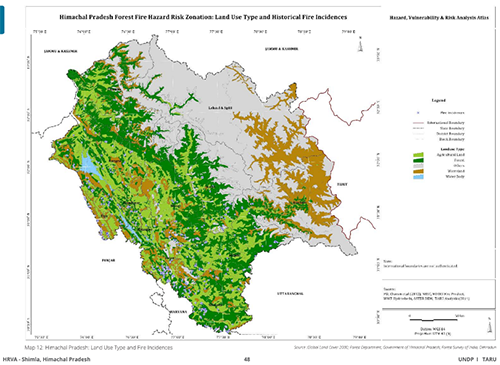
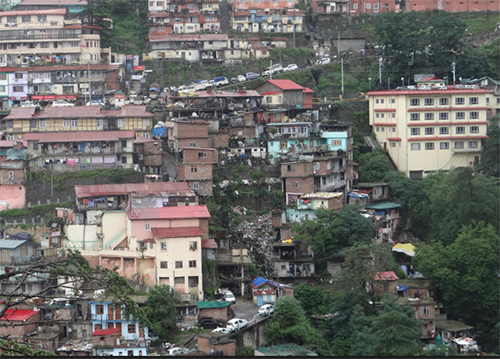
|
|
Shimla has conducted a Hazard, Risk and Vulnerability Analysis (HRVA) and developed a city level Risk Atlas to help stakeholders make risk-based choices to address vulnerabilities, mitigate hazards and prepare for response to and recovery from hazard events." |
||

Disaster Resilience
| Visakapatnam Andhra Pradesh |
||
| City Disaster Management Plan |

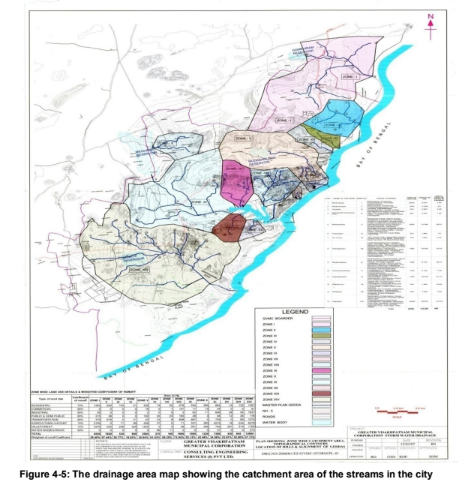
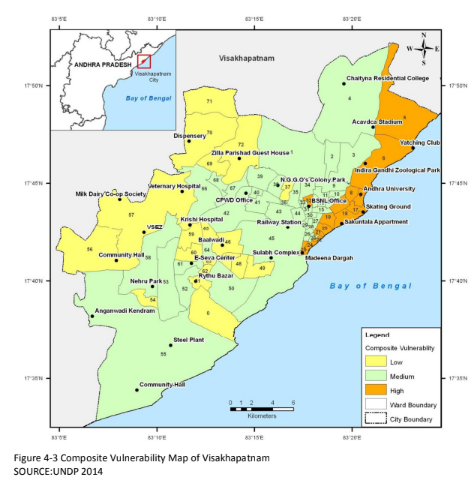
|
|
Visakhapatnam has prepared a comprehensive City Disaster Management Plan comprising of risk assessment of disasters and vulnerabilities and capabilities. The plan details out preparedness, response and action plan with focus on coastal mitigation measures. |
||
| Chennai Tamil Nadu |
||
| City Disaster Management Plan |



|
|
The Greater Chennai Corporation had prepared the first city disaster management plan as prescribed in the NDMA guidelines. The CDMP has taken into account the vulnerabilities present in the city based on its geography, demography, history and social and environmental aspects. |
||

| Udaipur Rajasthan |
||
| Climate Resilient City Action Plan |
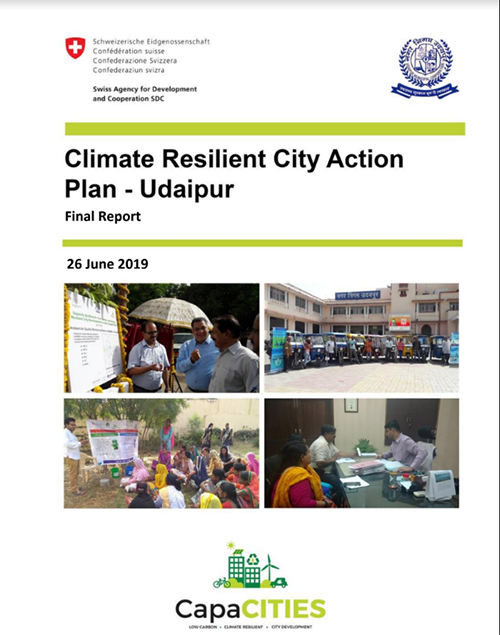
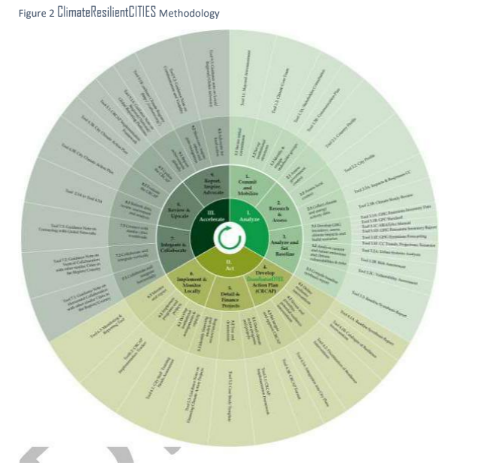
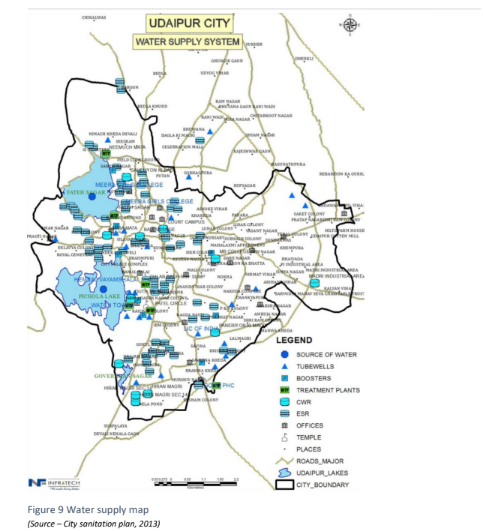
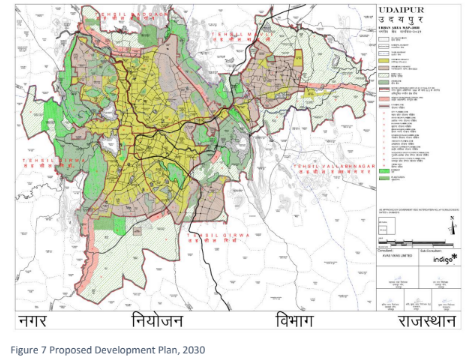
|
|
Udaipur city has prepared the Climate Resilient City Action Plan that includes the preparation of the GHG emissions inventory for the city along with the vulnerability assessment and identification & prioritization of resilience interventions. |
||
| Surat Gujarat |
||
| Sustainable Energy and Climate Action Plan |
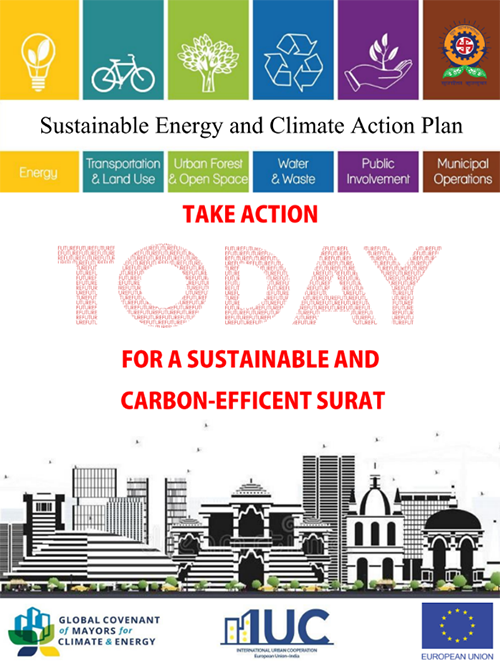


|
|
Surat has prepared the Sustainable Energy and Climate Action Plan that proposes actions for both climate change mitigation and adaptation based on a GHG emissions inventory and a climate change vulnerability assessment respectively. |
||

Energy and Green Building

Electricity Consumption in the City
| Surat Gujarat |
||
| Institutionalising Energy Efficiency Cell |

|
|
Surat Municipal Corporation has an energy efficiency cell which conducts energy audits, promotes energy conservation and renewable energy projects, and monitors usage of electricity of entire corporation. The Solar City Masterplan along with initiatives under Smart City Mission has ensured that the municipal corporation fulfils 34% of it’s energy needs through renewable sources (as of 2019). |
||
| Diu Daman & Diu |
||
| Formulated Renewable Energy Policy |


|
|
Diu had introduced a Renewable Energy Policy in 2017 to meet the central government’s targets on solar power generation and other renewable energy technologies. Diu Smart City has been successful to meet its goals and runs on 100% renewable energy during daytime and is saving around 13,000 tonnes of carbon emissions every year. The city has adopted a two-pronged approach whereby a 9 MW solar park spread over 50 hectares rocky barren land has been developed besides installing solar panels on the roof tops on 79 government buildings thereby generating 1.3 MW annually. Diu also offers its residents a subsidy of Rs 10,000-50,000 for installing 1-5KW roof top solar panels. Due to low-cost solar energy, power tariffs have been cut in residential category by 10% last year and 15% this year. |
||
| Tirupati Andhra Pradesh |
||
| Solar Energy Generation through efficient usage of land, water and rooftop surface |

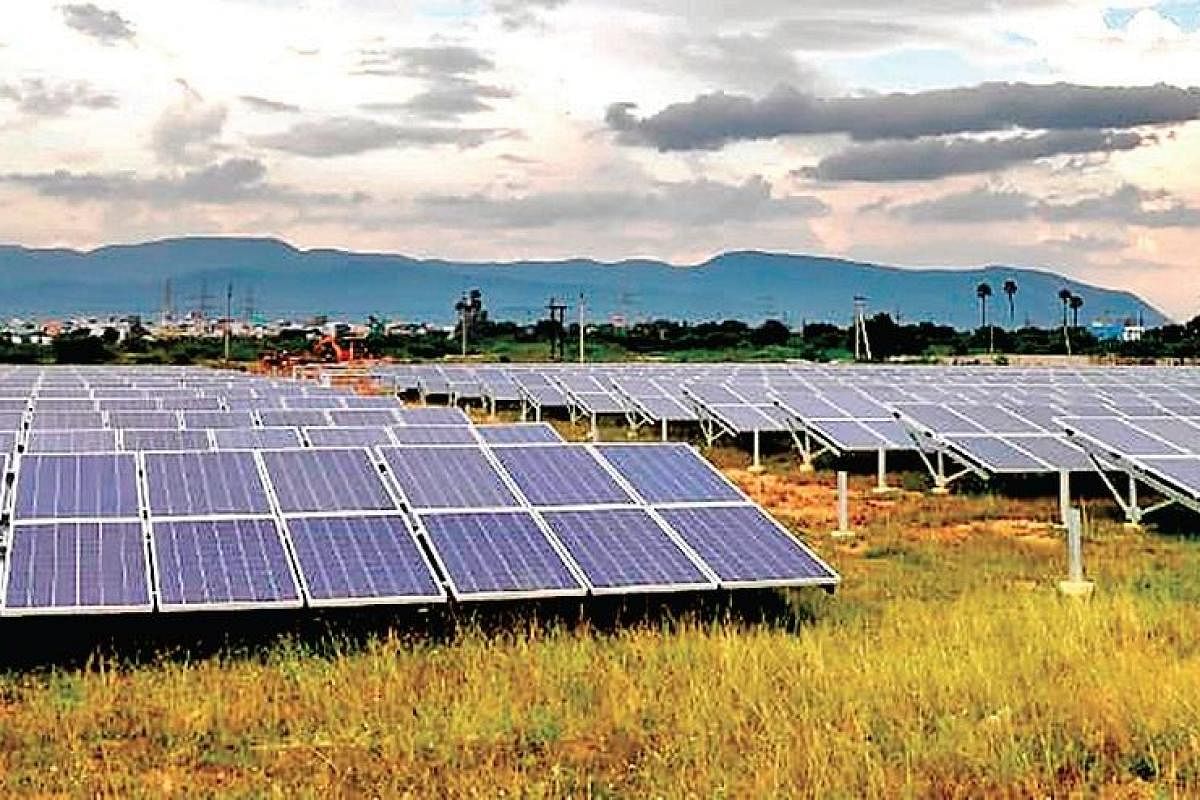
|
|
To contribute towards national goals of GHG reduction, Tirupati has undertaken a giant leap towards renewable source of energy through “11 MW Solar Power projects”. The projects include rooftop solar installations and land based solar park along with an innovating floating solar park at at Kailashgiri Reservoir. |
||

Fossil Fuel Consumption in the City
| Pune Maharashtra |
||
| Shift to Smart E Buses |
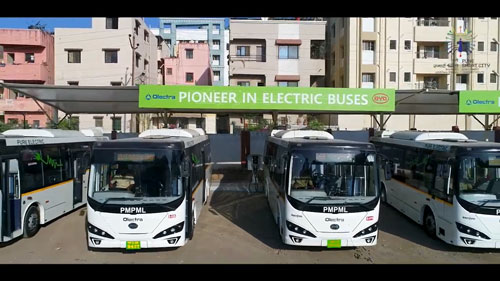
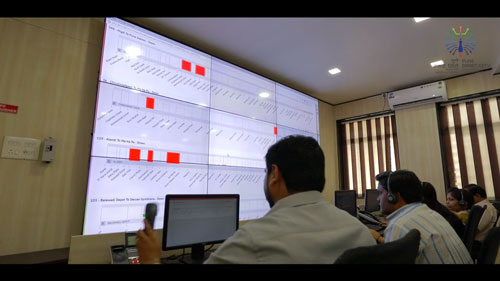
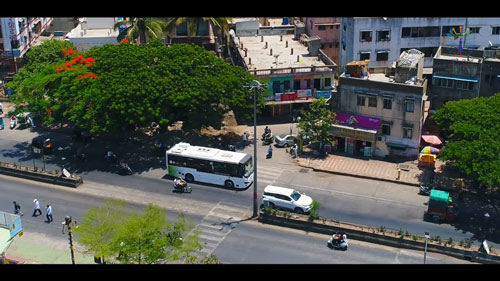
|
|
Pune has initiated adoption of Smart E-buses as a clean public transport option. This will reduce consumption of fossil fuels in long run and in turn reduce GHG emissions. The buses have also achieved 10 to 20 % rise in the revenue compared to the old buses. |
||
| Rajkot Gujarat |
||
| Retrofitted Street Lights |
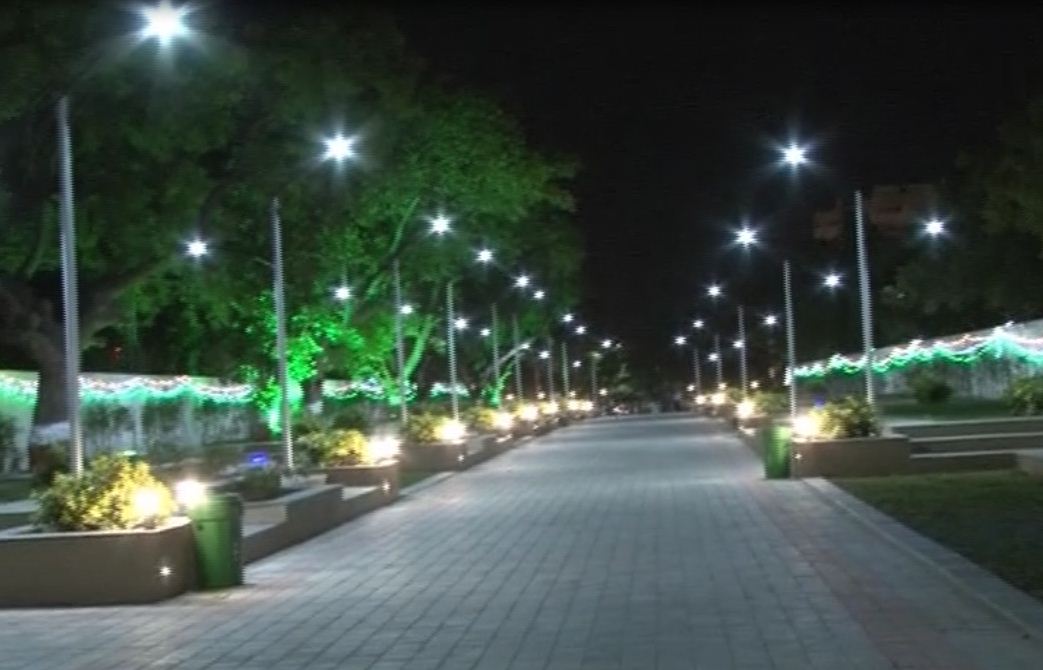
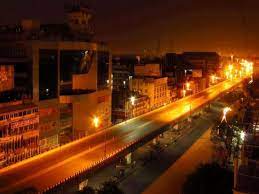
|
|
Rajkot has retrofitted the conventional street lights in the city with energy efficient LED in a span of three months in 2016-17. This led to energy savings of 60% and GHG reduction of around 7,000 tonnes CO2 eq. The initiative helped the city government in saving INR 50 million, at the same time providing better illumination and enhancing public safety. |
||
| Nagpur Maharashtra |
||
| Project green light |
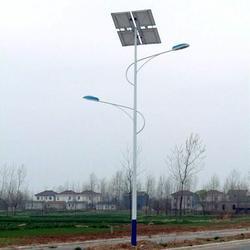

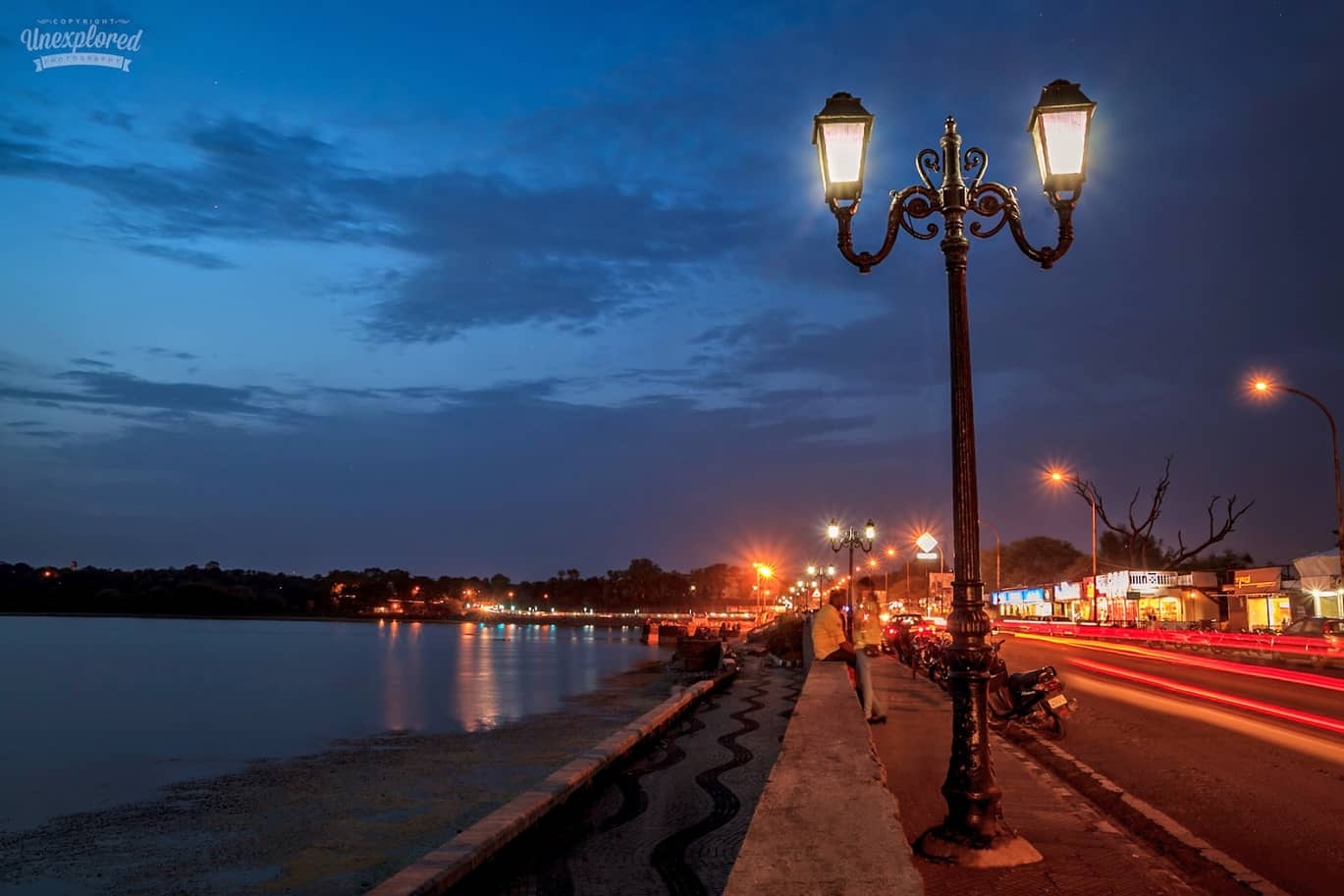
|
|
Nagpur has initiated retrofitting the existing conventional street lighting system with LED lights that has resulted in energy savings of more than 40% of electricity annually and has led to reduction in carbon footprints. It is one of the largest environmental friendly LED (Light Emitting Diode) lights project ever undertaken by a city with an aim to replace 1,36,000 streetlights. |
||

Promotion of Green Buildings
| Warangal Telangana |
||
| Incoporated ECBC to Building Bye Laws |
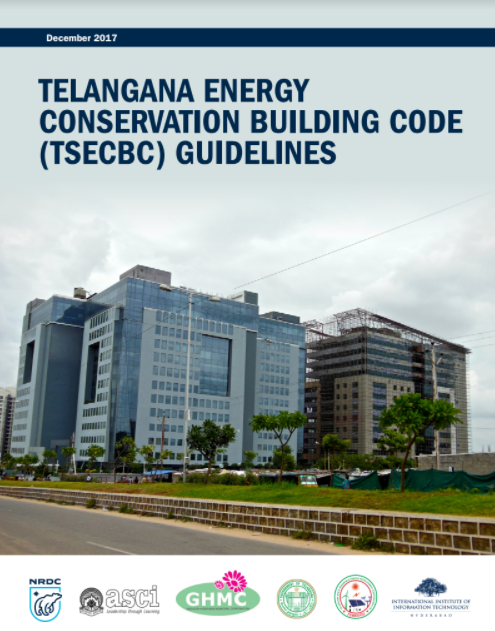
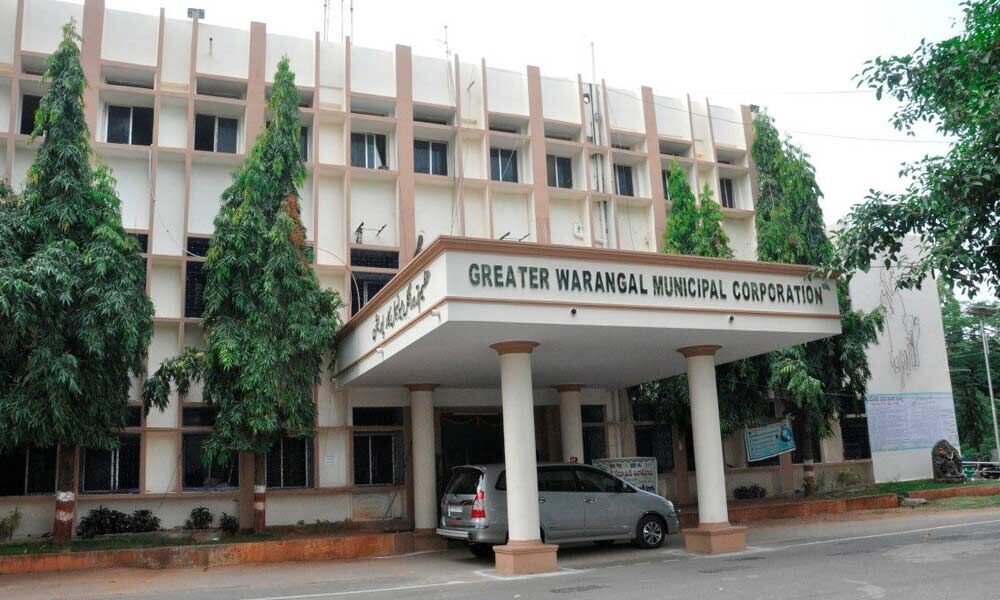
|
|
Warangal has included Energy Conservation Building Codes (ECBC) in its building bye laws and also established green building cells/ committees at local level. The Telangana Energy Conservation Building Code Guidelines (TSECBC) has prescribed compliance guidelines for adoption of ECBC in building codes and building permission systems at ULB level. |
||

Green Building Adoption
| Chandigarh Punjab |
||
| Green Building Adoption through Master Plan |
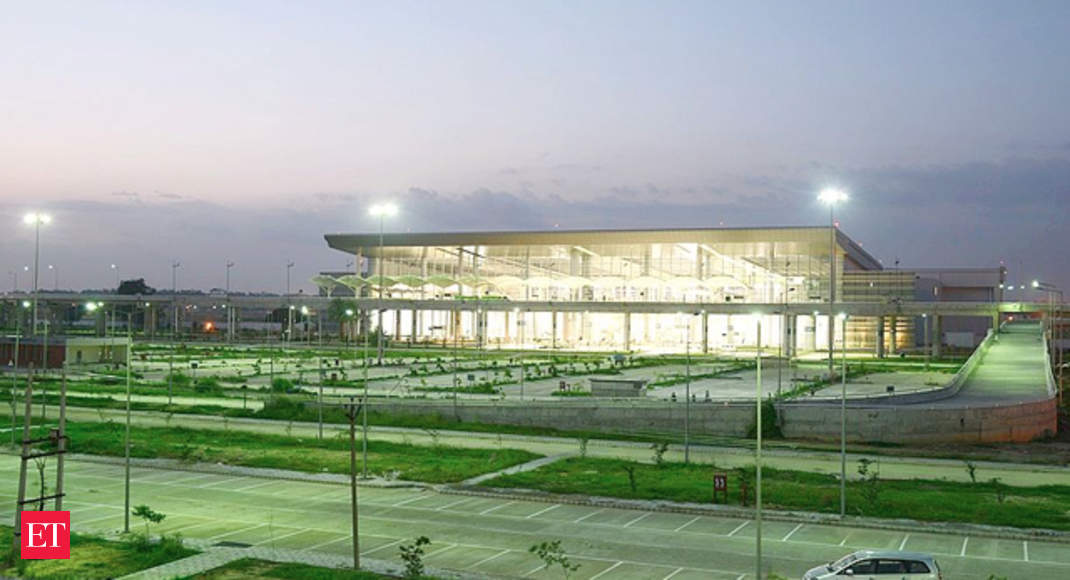
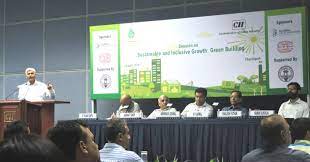
|
|
Chandigarh master plan has encouraged adoption of the green building rating system and design concepts in line with the Energy Conservation Building Code (ECBC), 2007. The administration has also adopted the CPWD guidelines for placing a minimum three-star GRIHA rating in all public buildings in the future. |
||
| Pimpri Chinchwad Maharashtra |
||
| GRIHA rated development authority building |
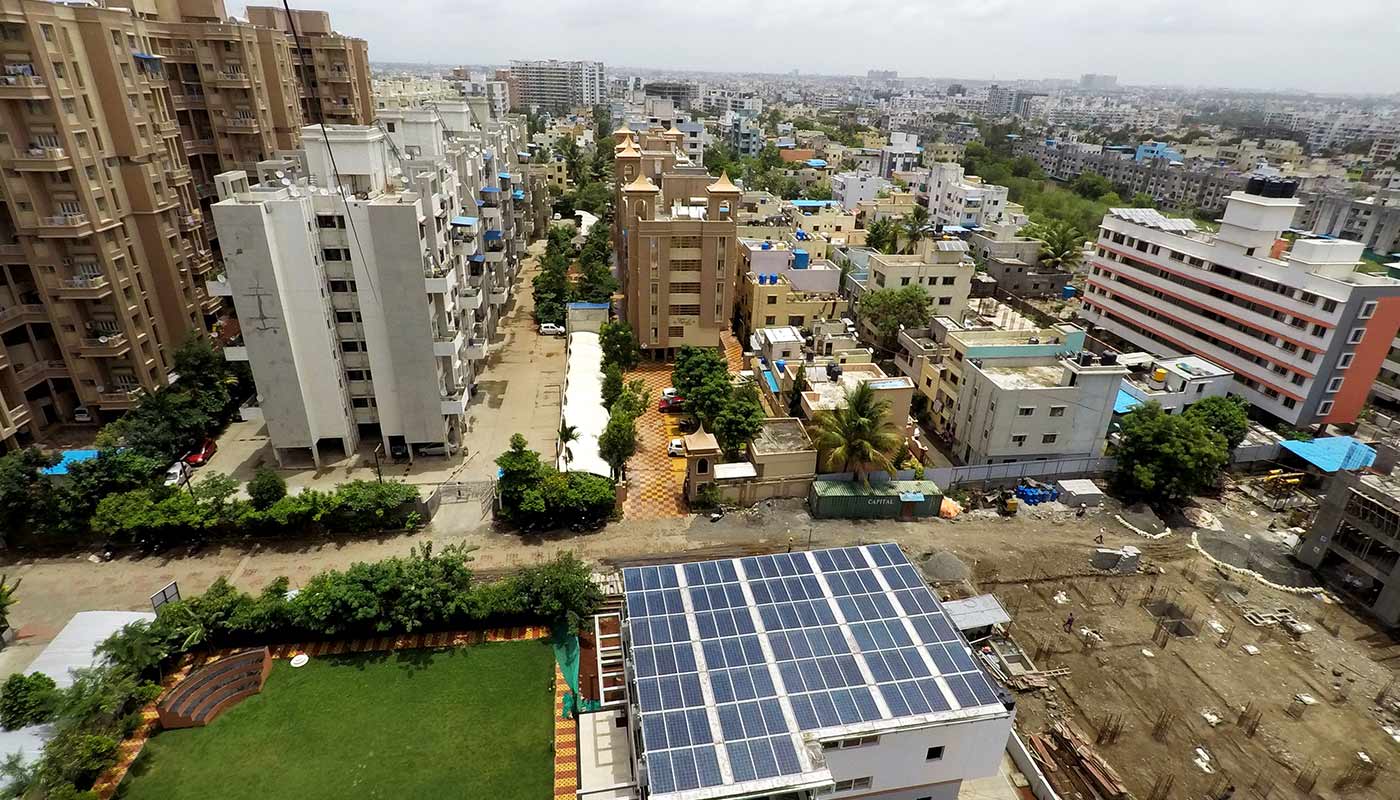
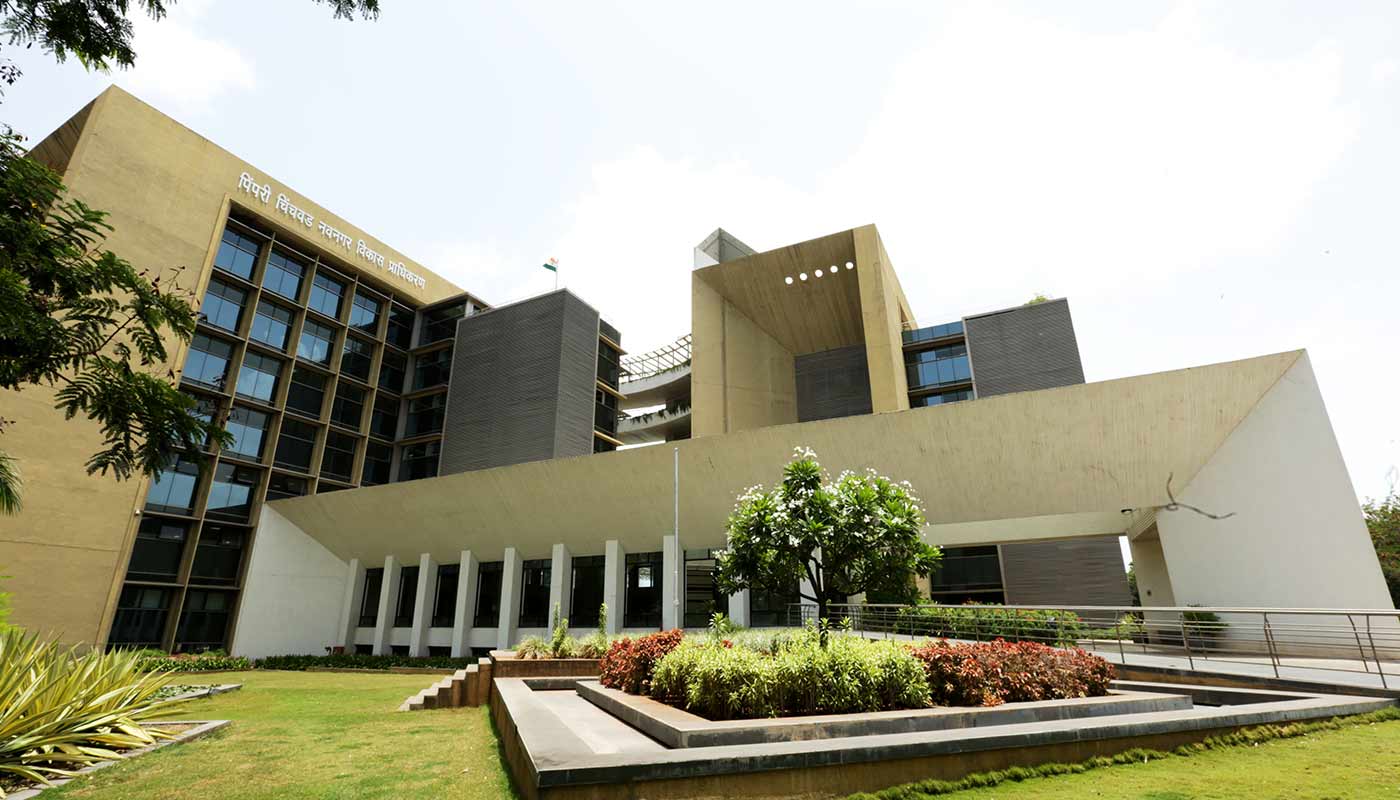
|
|
The Pimpri Chinchwad municipal corporation has adopted GRIHA, the national rating system for green buildings in India, with the objective of promoting sustainable development and wise use of natural resources. Incentives like discounted premium for developers and reduced property tax for home owners have been implemented to promote adoption of green buildings. The Pimpri Chinchwad Navnagar Development Authority building designed in 2008 is also a certified green building which is naturally ventilated and runs on solar energy. |
||
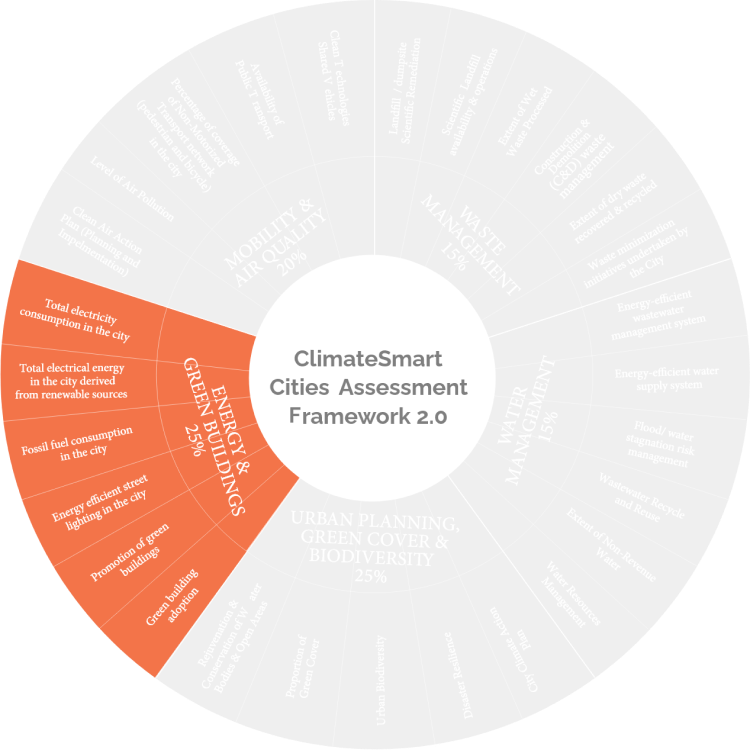
Mobility and Air Quality
| Kochi Kerala |
||
| Shift to Cleaner Technologies shared vehicles |
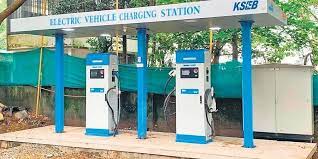

|
|
Under the Integrated Sustainable Urban Transport Systems for Smart Cities (SMARTSUT) project, Kochi has prepared for pilot of 100 e-autos with lithium-ion batteries including options for a viable business model, demand analysis, technology selection, cost estimates and supporting infrastructure. Pilot areas are Fort Kochi, Kadavanthara and Elamkulam and is intended to lead to upscaling to other parts of the city. |
||
| New Delhi Delhi |
||
| Electric Vehicle Policy |

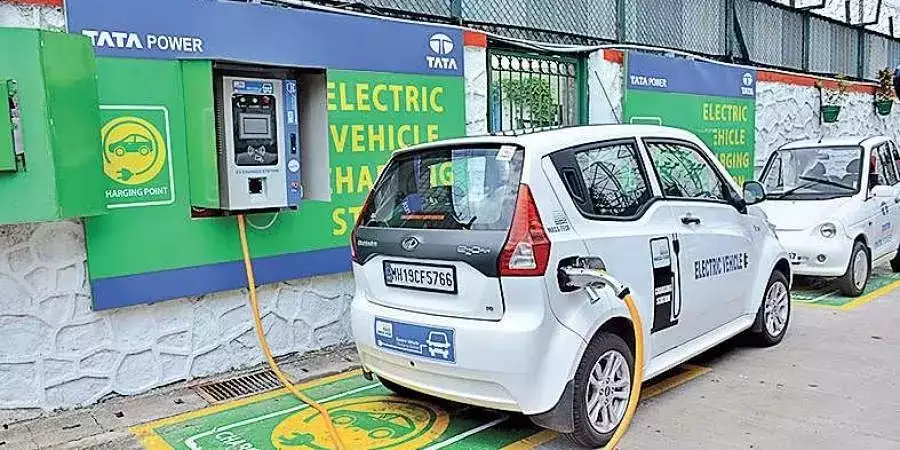

|
|
Delhi Electric Vehicle Policy launched in 2020 has a vision to make Delhi the EV Capital of India. The Policy aims to achieve the overarching objective to improve Delhi’s air quality and create an entire supply-chain ecosystem for this new segment of vehicles. In order to significantly benefit Delhi’s air quality, the policy intends to deploy 25% of all new vehicles to be battery-operated vehicles by 2024. |
||

Availability of Public Transport
| Amritsar Punjab |
||
| BRTS public transport |


|
|
Amritsar has a 31 km BRTS corridor which has improved commuter conditions to a large extent. To further improve public transportation modal share and improve last mile connectivity, the city is implementing a range of sustainable mobility measures under the CITIIS (City Investments to Innovate, Integrate and Sustain) program. It includes provision of e-mobility options and feeder network to the BRTS corridor, enhancin EV charging infrastructure and provision of common smart card. |
||
| Naya Raipur Chhattisgarh |
||
| BRTS public transport |

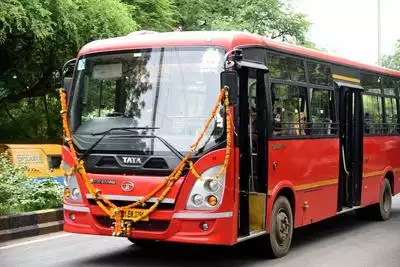
|
|
Naya Raipur has initiated a Bus Rapid Transit service for a seamless connectivity with Raipur and within the city of Atal Nagar. “Intelligent Tracking System” are being used for managing the bus system. |
||

Percentage of coverage of NonMotorized Transport network
| Ranchi Jharkhand |
||
| Tactical Urbanism |
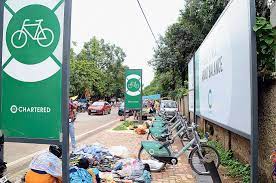
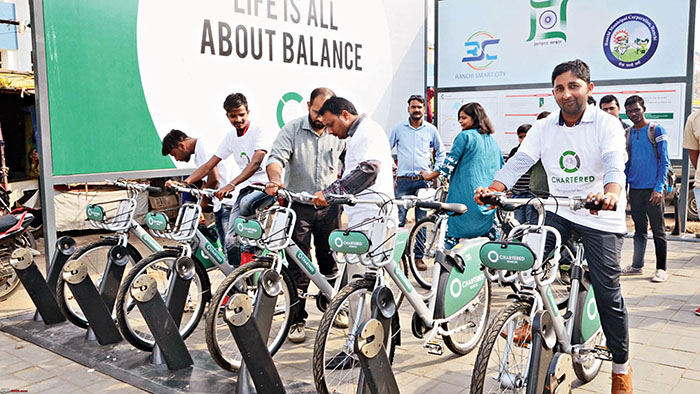

|
|
"Ranchi initiated an almost overnight transformation of one ot’s busiest streets, MG Road, through a quick tactical urbanism intervention. Using simple temporary measures like paint and traffic barricades, the street space was redesigned to create colourful, dedicated walking paths for pedestrians. This simple first step has created a cascade of promising changes – a first in the state of Jharkhand." |
||
| Coimbatore Tamil Nadu |
||
| City wide Cycling and Pedestrian Network Plan |
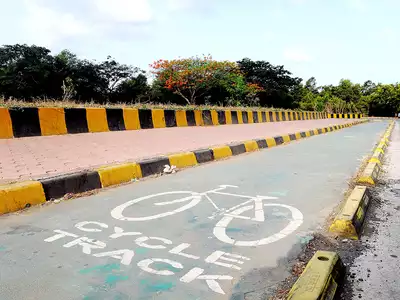
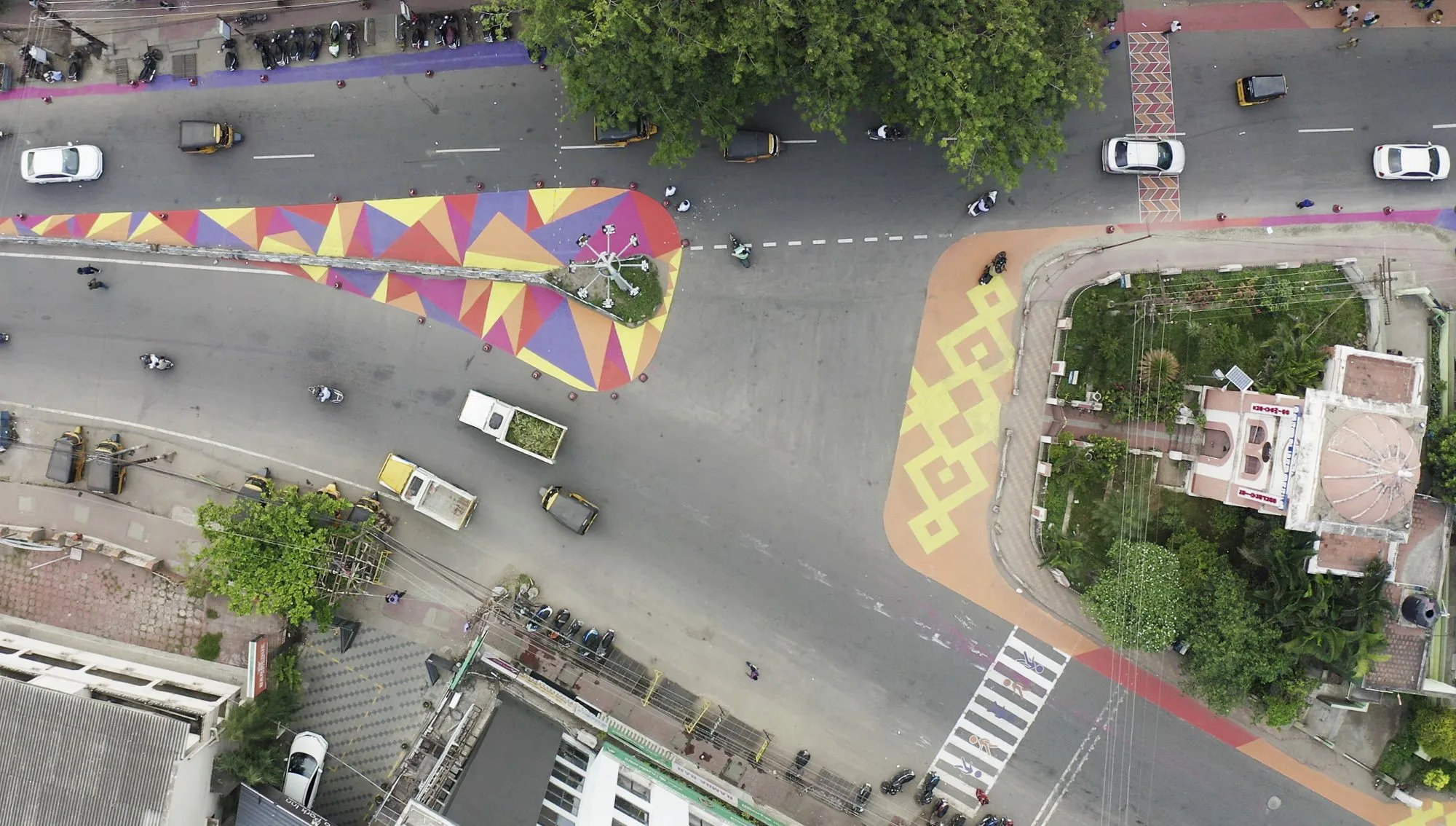
|
|
Coimbatore has recently prepared a city wide cycling and pedestrian network plan which was approved in January 2020. The plan sets out a comprehensive approach for building a network of cycling and pedestrian routes in the city and sets forth a comprehensive set of measures which would put city on a path of achieving sustainable transport goals. The plan has an implementation period of 15 years. |
||
| Pune Maharashtra |
||
| Air Action Plan |
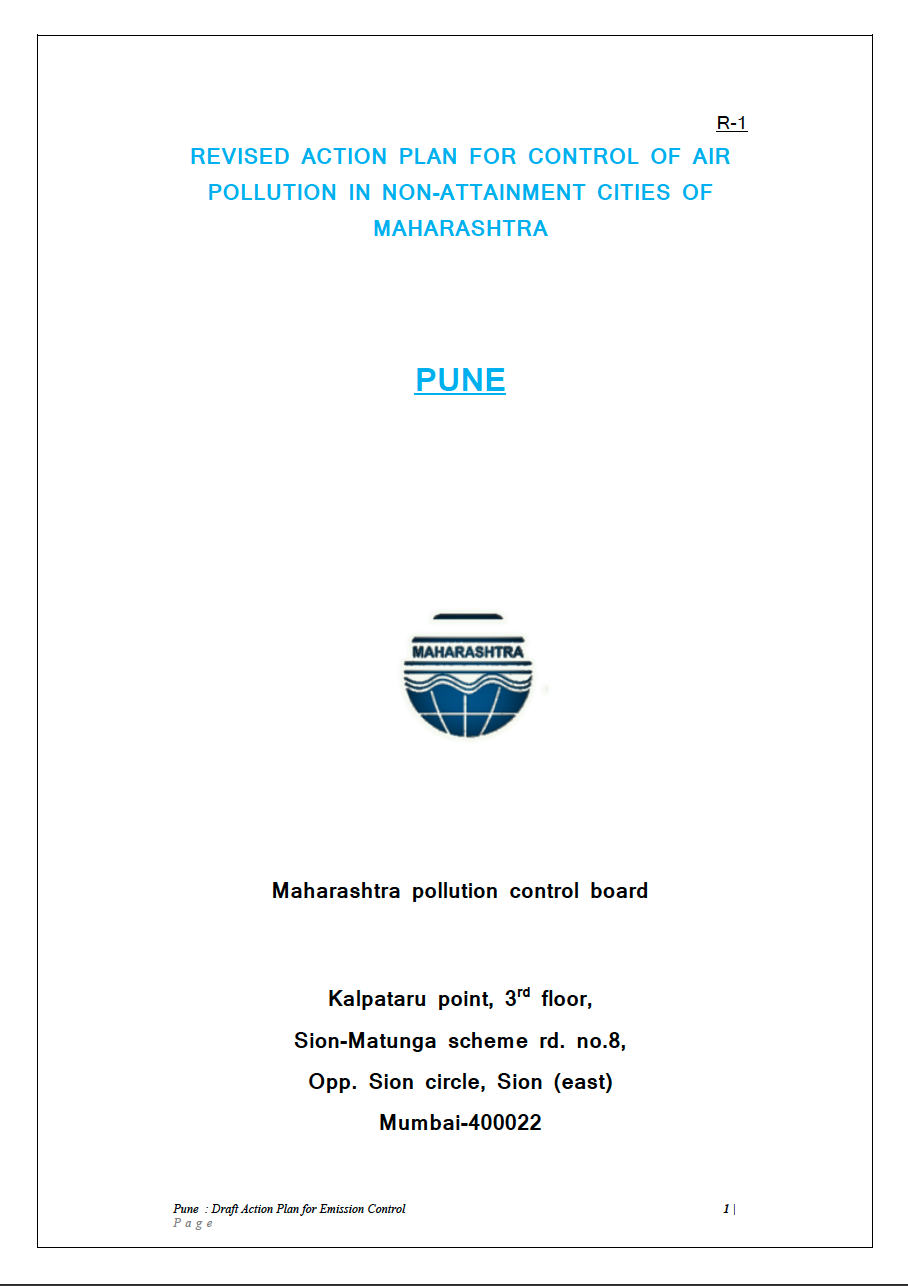

|
|
The action plan for emission control details out the activities undertaken for ambient air quality monitoring and the identified sources of pollution in Pune city. It takes stock of the actions taken and a proposed road-map for improved monitoring and reduced pollution. |
||
| Agra Uttar Pradesh |
||
| Air Quality Monitoring enhanced through ICCC |
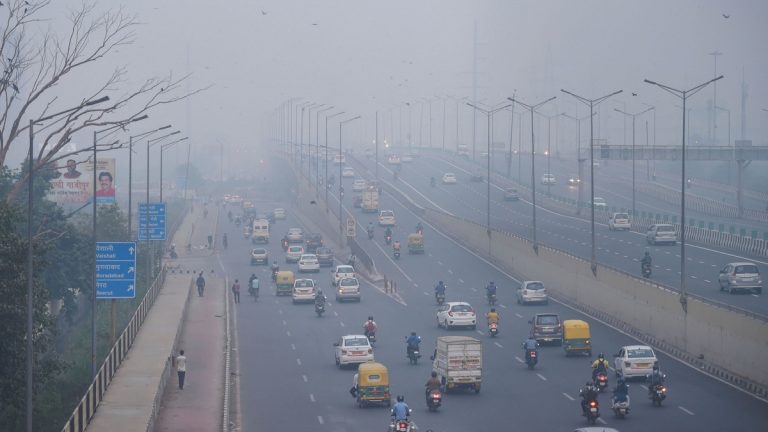
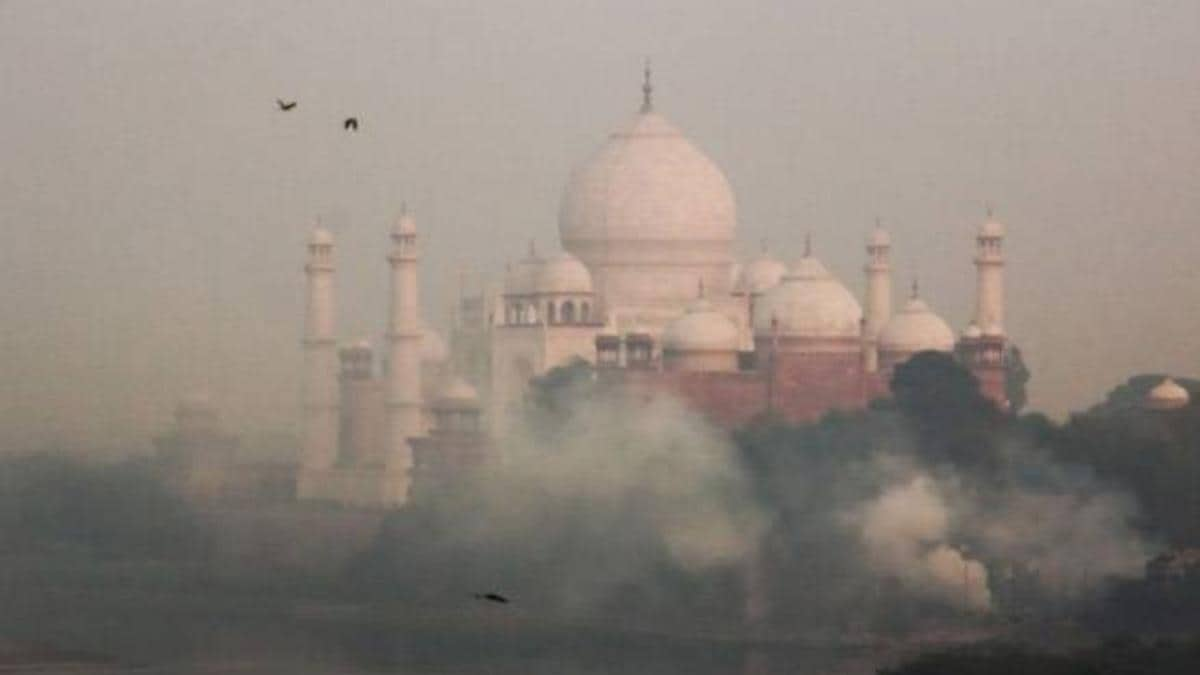
|
|
Agra city has deployed 39 Polludrone sensors across the city to monitor ambient air quality It assesses all the critical pollutants present in the air - PM2.5, PM10, CO2, CO, SO2, NO, NO2, and O3, along with the weather parameters - noise, light, UV radiation, temperature, humidity, and rainfall. The dashboard of the system has been integrated with the city’s Command and Control Centre. Real-time pollution data can be observed here, which can assist in mitigating the root cause and create awareness among local people and tourists about the current environmental health. |
||
| Ahmedabad Gujarat |
||
| Air Information and Response Plan (AIR) |
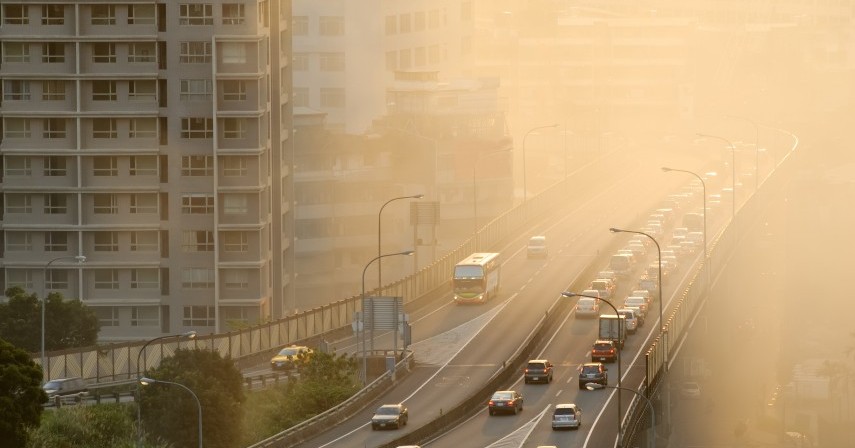
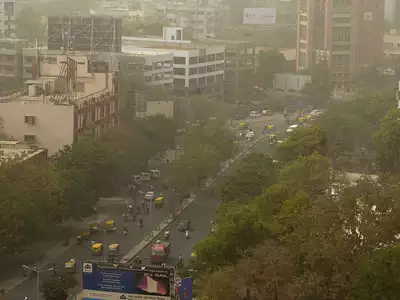
|
|
The Air Information and Response Plan (AIR) plan is aimed to tackle the issue of air pollution and creating healthier communities. The plan is based on five key strategies-i) Pilot Health-Based AQI Warning and Interagency Coordination, ii) Public Awareness and Community Outreach, iii) Focused Activities for Vulnerable Groups, iv) Capacity Building Among Medical Professionals, and v)Initiate Research on Future Exposure Reduction and Mitigation Pathways. |
||
| Dehradun Uttarakhand |
||
| Clean Air Action Plan |
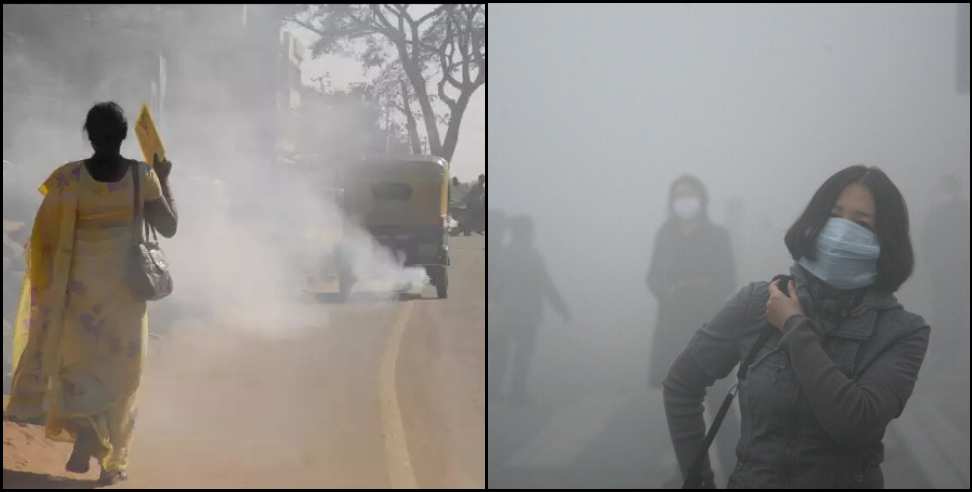
|
|
Dehradun has prepared the Clean Air Action Plan (2018-22) with the aim to meet the prescribed annual average ambient air quality standards. The Plan includes a city specific need assessment, a detailed GHG inventory and a proposed action plan. |
||
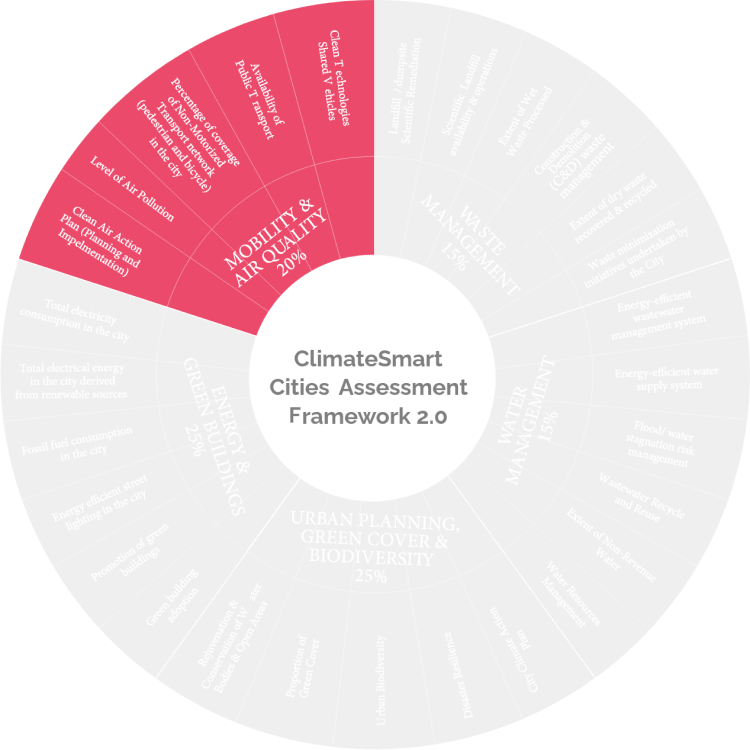
Waste Management
| Jabalpur Madhya Pradesh |
||
| Integration of Technology in Collection and Transportation |

|
|
The city was awarded the title of “Best Big City in Innovation and Best Practices” in the SwachhSurvekshan 2019. With 100% segregation at source, most of the city’s waste is transported to waste to energy plant at Kathonda, where the Municipal Corporation and Essel Infra projects Ltd. has set up 600 TPD processing plant. |
||
| Ujjain Madhya Pradesh |
||
| Bio-methanation project |




|
|
The city has adopted an integrated approach to strategically process and reduce the bio-degradable waste of the city to generate electricity by a bio-methanation plant. This plant is helping in the solid waste management of the city and is also a step towards reducing the burden on non-renewable resources by producing electricity used in the nearby street lights. The slurry generated from biomethanation is utilized for landscaping, gardening and farming purposes. The project has reduced greenhouse emissions onto the environment by 12,176 Kg/month. |
||
| Varanasi Uttar Pradesh |
||
| Upcycling Dry Waste |
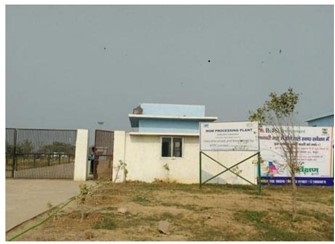
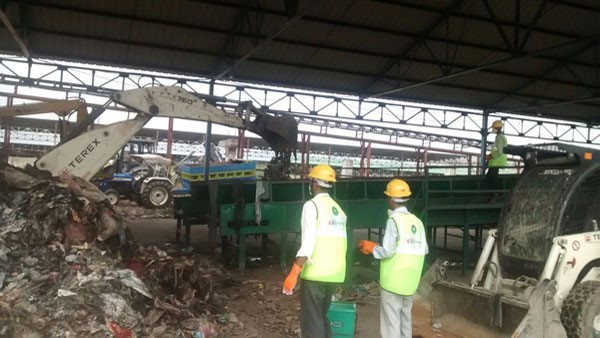
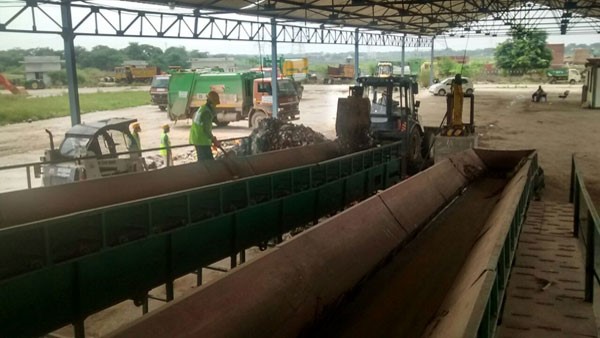

|
|
Scrapshala, Ravindrapuri – is a unique initiative that works toward creating decorative products from waste materials and discarded items. Non-degradable, dry trash/scrap is used to customized products and is being encouraged by the city. |
||
| Ahmedabad Gujarat |
||
| Material Recovery Facility |

|
|
The Material Recovery Facility (MRF) at Ahmedabad runs on a public private partnership (PPP) model between Ahmedabad Municipal Corporation (AMC) and Nepra Resource Management Pvt. Ltd. The daily sorting capacity of dry waste of the MRF plant is around 100 MT. Dry Waste is collected with the help of waste pickers and through collection vehicles and brought to the material recovery facility (MRF) where it is manually segregated, checked and segregated waste is then sold to the authorized recyclers. |
||

Construction & Demolition (C&D) waste management
| Chandigarh Punjab |
||
| Construction and Demolition Waste Processing Plant |
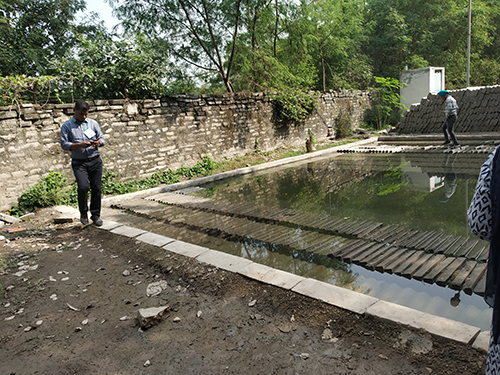
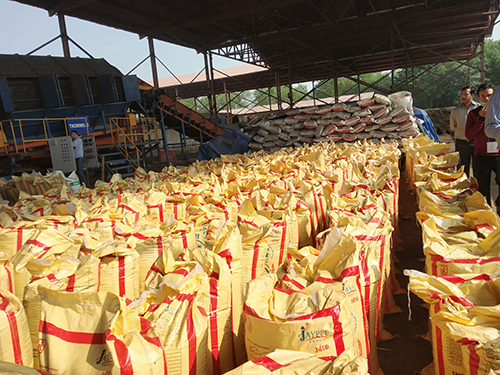

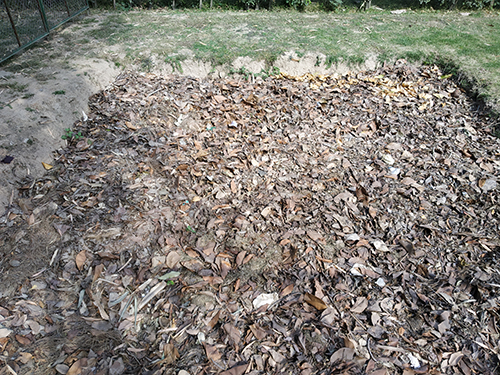
|
|
Chandigarh Municipal Corporation has set up the construction and demolition waste processing plant in its industrial area for stacking, crushing, processing and manufacturing of various C&D products. Till date 5000 MT C&D waste has been processed into recycled products saving natural resources, reducing the quantum of waste reaching landfills. Another major benefit has been the reduction in carbon footprints and hence yielding numerous environmental benefits. |
||
| New Delhi Delhi |
||
| Construction and Demolition Waste recycling facility at Burari |


|
|
North Delhi Municipal Corporation has installed a recycling facility in Burari which is installed, operated and maintained on a Public Private Partnership (PPP) basis between the Corporation and Infrastructure Leasing and Financial Services Limited (IL&FS) Environment. There are 168 designated intermediate collection points across the city from which waste is transported to the processing facility. |
||

Extent of Wet Waste Processed
| Nagpur Maharashtra |
||
| Centralized Composting Plant |
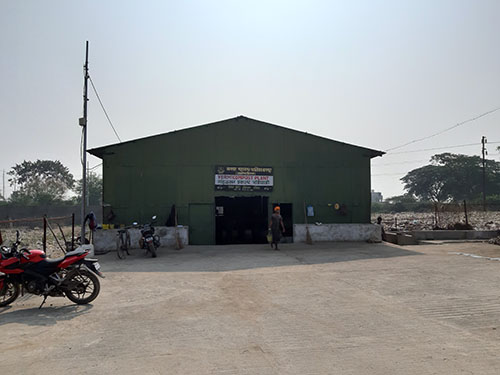
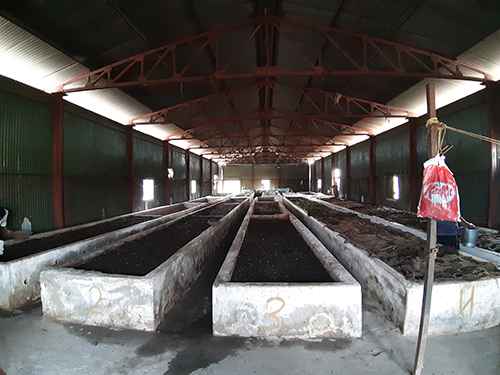
|
|
Nagpur has a centralized vermi-composting plant at Bhandewadi operational since 2008. Large quantities of the city’s waste from vegetable market, fruit market and hotels are processed in this plant. |
||
| Coimbatore Tamil Nadu |
||
| Biogas plant and Vermicomposting plant in Coimbatore - Processing and treating wet waste |


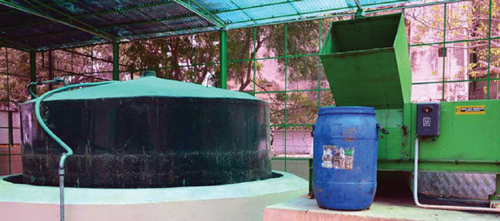
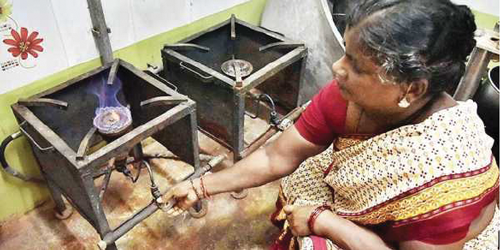
|
|
The Coimbatore city municipal corporation has installed a biogas plant at Amma Unavagam premises at Chitra Nagar. Vegetable waste, cooked and uncooked food waste from the hotels and restaurants in and around the are used to generate biogas through anaerobic digestion. At the vermicomposting plant, segregated waste is processed and converted into compost at this site. |
||
| Mysore Karnataka |
||
| Zero Waste Management Plan |




|
|
The Zero Waste Management Plant at Kumbarakoppal was started in 2005 and covers 5 wards of Mysuru Municipal Corporation. Wet and dry waste is segregated at two stages to ensure all parts are retrieved and sold or sent for composting. This ensures that zero waste is sent to landfill from these 5 wards. |
||
| Jabalpur Madhya Pradesh |
||
| Zero landfill & bin free city |

|
|
The city has adopted a robust solid waste management solution which aims to integrate Waste to- Energy plant with the centralized monitoring system with a better governance on collection of daily garbage, monitoring of garbage collection, transportation system by the command control center, while ensuring cost reduction and resource optimization. |
||
| Tirupati Andhra Pradesh |
||
| Remediating Dump Site- Bio Mining Process |
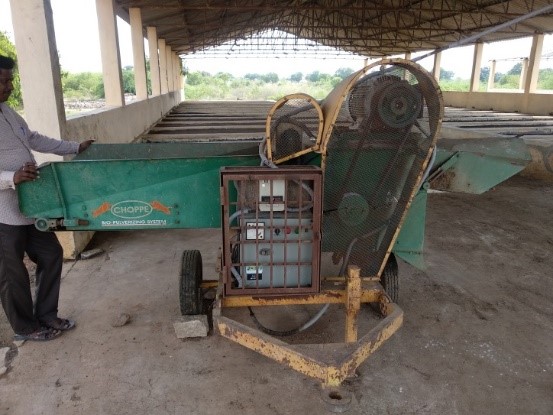

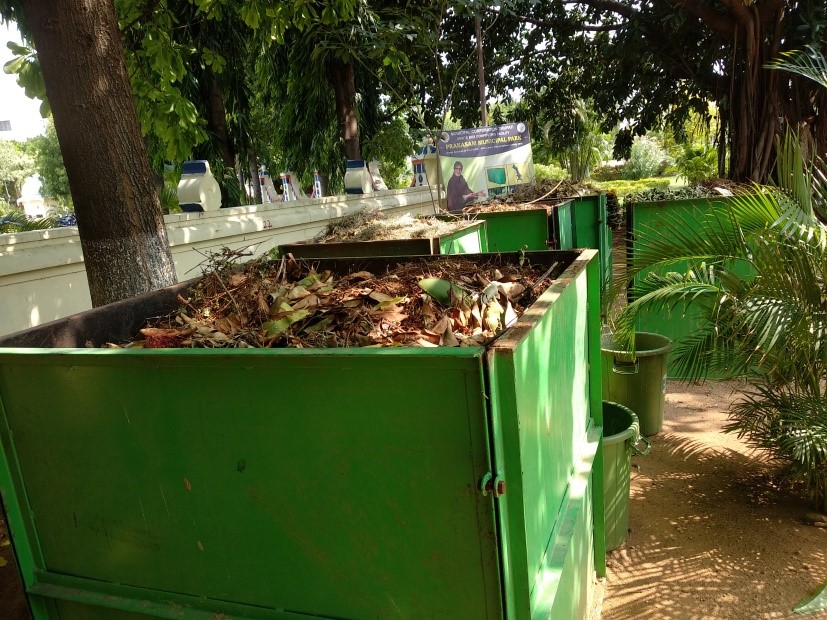
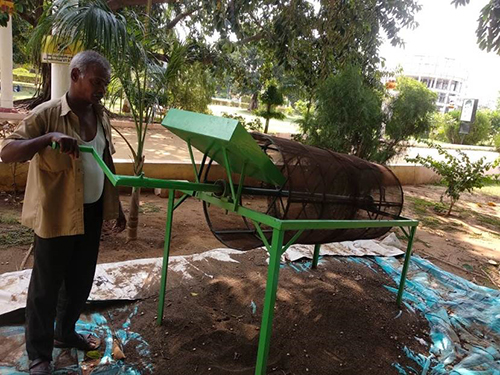
|
|
Tirupati is in the process of remediating the Rampuram dump site through bio-mining process. It will help in reduction of soil, air and water pollution in the area along with restoring the local flora and fauna. It will also be beneficial for residents’ health living in close proximity the site. |
||
| Indore Madhya Pradesh |
||
| Bioremediation- Bio-mining of legacy waste |


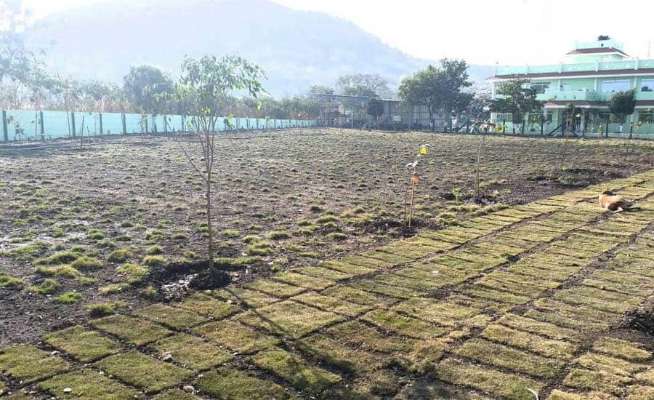
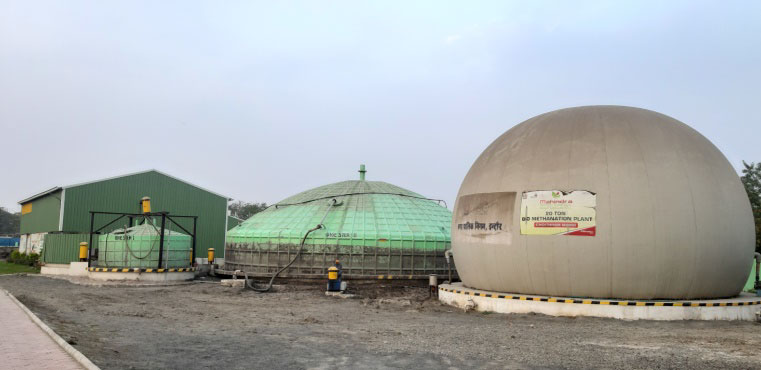
|
|
Indore had taken considerable steps to tackle waste management in new and innovative ways. One such example is Indore’s Devguradiya dumpsite where the dumping yard is saddled by heaps of garbage for decades. The project aims to clear legacy waste dumps and reclaim 100 acre land of worth Rs. 300 Cr. Due to adoption of scientific bio-remediation process the area inside the processing and disposal site is transformed into beautiful green-belt uplifting the environment, eliminating dump fires, reducing emissions, soil pollution and ground water contamination. |
||
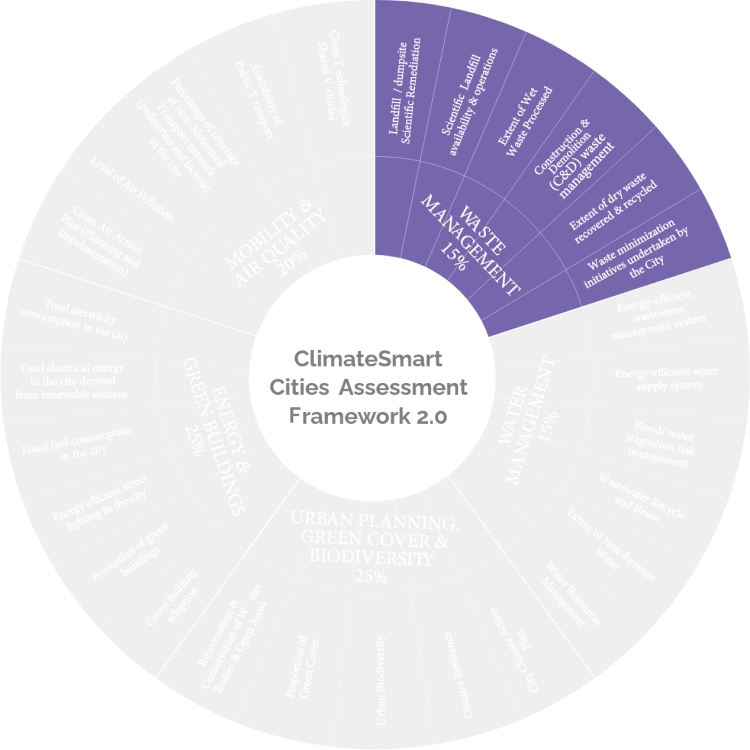
Water Management
| Vijaywada Andhra Pradesh |
||
| Water Resource Management Plan |
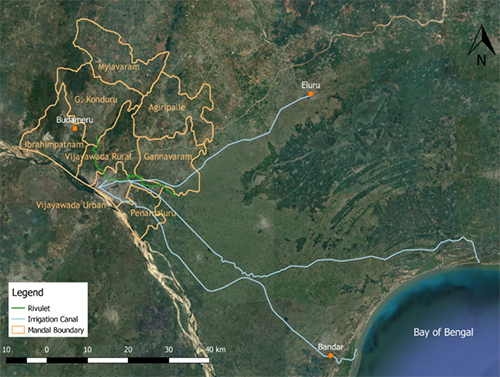
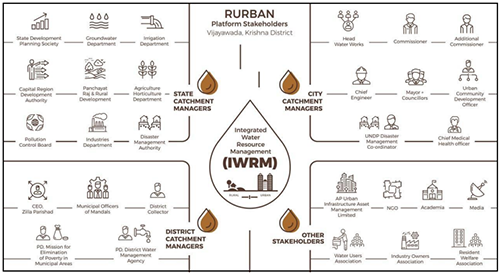
|
|
Vijayawada has prepared a Water Resource Management Plan highlighting the assessment of current water resources including both ground and surface water. The plan has taken into consideration the future water demand and water availability for at least five years. |
||
| Namchi Sikkim |
||
| Integrated water supply management |


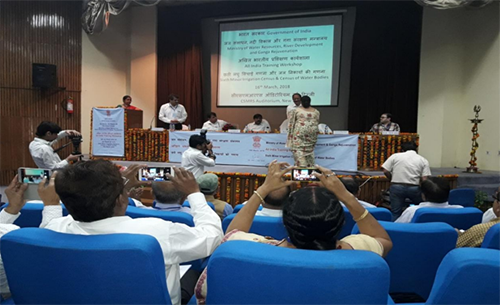

|
|
Namchi has implemented a strategy for water conservation & reuse using co-polymer based rain water harvesting technology. The city aids towards the greater objective of water management and conservation and to increase recharge of groundwater by capturing and storing rainwater. Rainwater harvesting from rooftop run-offs and natural waterbodies augment the community development. |
||

Extent of Non-Revenue Water
| Surat Gujarat |
||
| Non Revenue Water Cell |
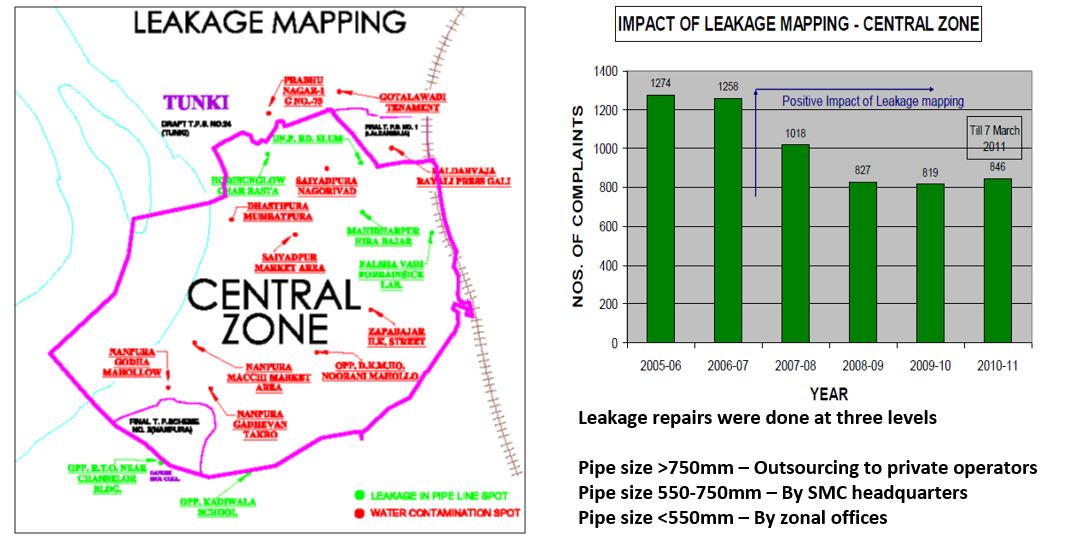
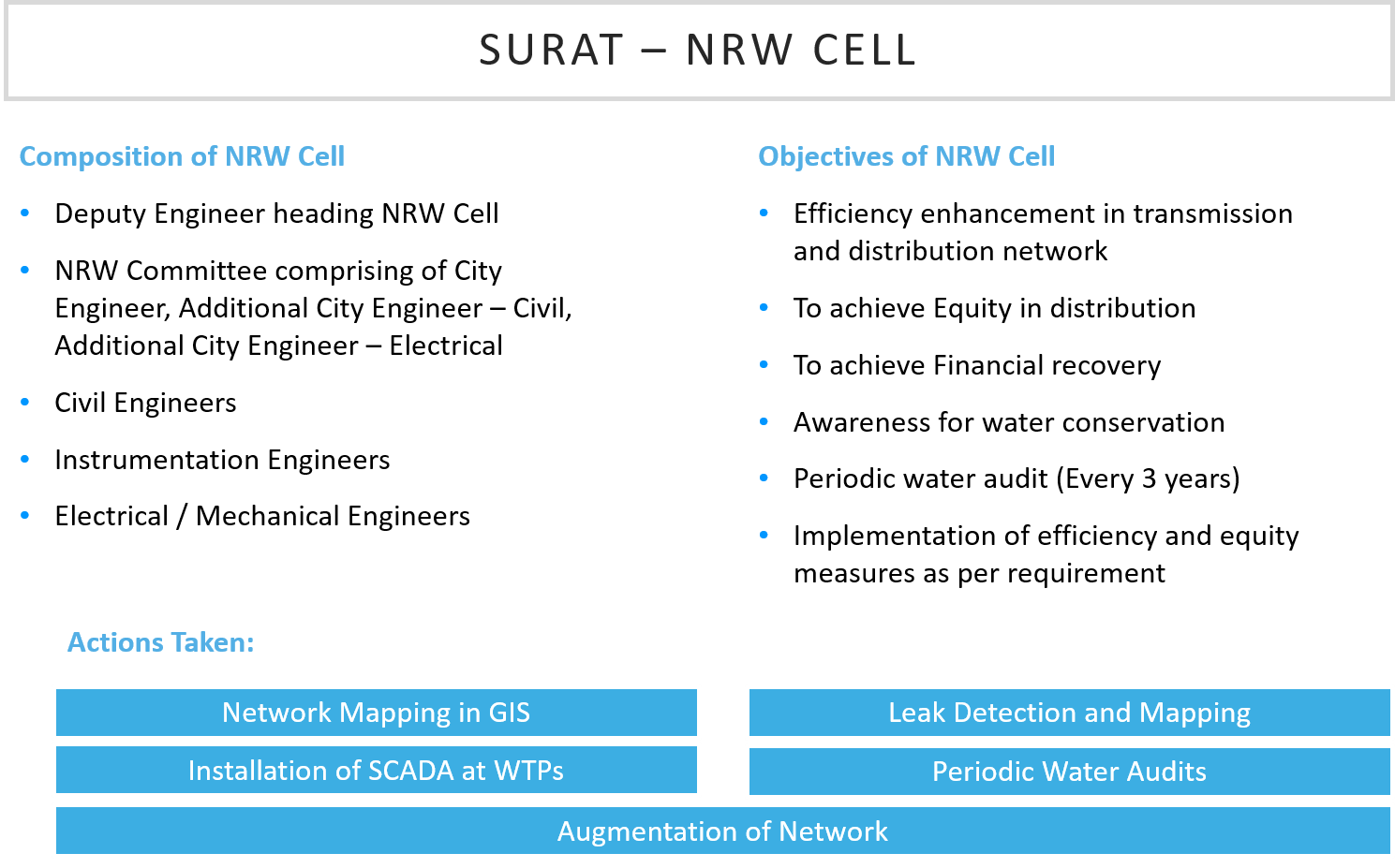
|
|
Surat has established a NRW cell to take up dedicated actions. A comprehensive NRW study along with leakage mapping has been conducted. A scheme of 24 x 7 water supply with 100% metering has been in operation since 2015. This scheme has helped to monitor NRW by assessing the quantity of water treated versus the quantity of water supplied. Through metering and levy of water charges, the city has not only been able to monitor NRW but also improved revenue income. |
||
| Bhubaneshwar Odisha |
||
| Assessment and implementation for NRW reduction |

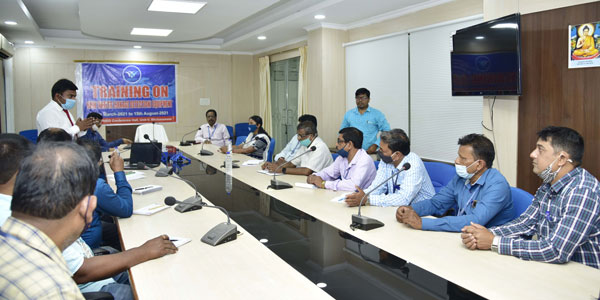
|
|
The city has planned to expand the network to achieve universal coverage by providing every household with water supply service connection. One of the key municipal reforms under AMRUT programme, is to reduce NRW from current levels to 20% providing the following benefits: Ensuring equitable water supply and reduce demand/supply gap; Improvement in network efficiency by reducing water losses; Improvement in water supply coverage, reliability and quality of service; Improving cost recovery from water supply operations. |
||
| Bengaluru Karnataka |
||
| Decentralized Wastewater Treatment and Reuse Unit (DWTRU) |
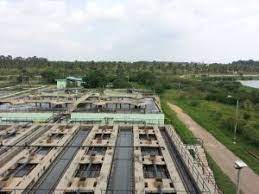
|
|
Bengaluru has conducted studies on the wastewater treatment and reuse for establishing a Decentralized Wastewater Treatment and Reuse Unit (DWTRU) using small-scale on-site sewage treatment plants. They have also incorporated the concept of zero liquid discharge and urban wastewater recycling, an attractive solution for addressing the problems of water pollution and scarcity. |
||
| Surat Gujarat |
||
| Reuse & Recycle of Treated Wastewater Action Plan 2019 |
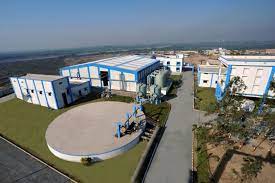

|
|
The city of Surat has prepared an action plan which promotes the reuse of treated sewage for different purposes of gardening, industrial reuse, tanker filling, lake restoration, flushing and construction with a vision to maximize the collection & treatment of generated sewage and reuse of treated wastewater on a sustainable basis, thereby reducing dependency on freshwater resources. Also, the reuse of treated wastewater can become a source for revenue generation. |
||
| Cuttack Odisha |
||
| Integrated City Level Disaster Management Plan |

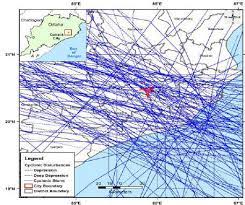
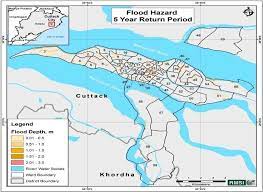
|
|
Cuttack, located at the confluence of Mahanadi and Kuakhau rivers is highly vulnerable to floods and water stagnation. The city has prepared an integrated city level disaster management plan which consists of vulnerability & exposure analysis at ward-level, resource inventory and capacity analysis, preparedness plan, response plan, reconstruction & rehabilitation measures and mitigation plan. The ULB has also setup a city control unit to monitor the water logging and blocking of drains. The existing drainage infrastructure has been improved by adopting structural measures such as building retaining walls, barrages and diversion channels etc. |
||
| Pune Maharashtra |
||
| Standard Operation Procedure for Flood Control (SOP) |


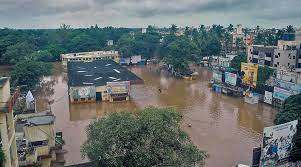
|
|
The city of Pune has prepared a SOP for taking timely action, systematic co-ordination among department and public, streamlining communication and decision making. The core objectives include identifying hazard potential on downstream of the dam, warning about probable floods in advance, taking preventive actions in advance, monitor flood situation, protection of human lives & infrastructure, restore damaged infrastructure due to floods. |
||
| Ahmedabad Gujarat |
||
| Energy Audit Report |

|
|
Ahmedabad has conducted the energy audit report where potential energy saving and cost saving has been highlighted with possible measures. The city also has provided the trend for energy consumption from 2016 to 2020. It is evident that around 26% of energy consumption has been reduced from 2018to 2020 after taking appropriate measures proposed in the energy audit report. |
||
| Durgapur West Bengal |
||
| Investment grade energy audit report |
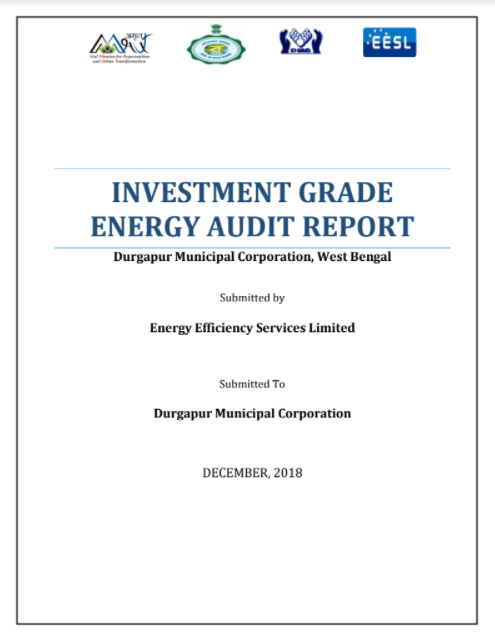
|
|
The city of has conducted an energy audit of the water supply system to carry out a performance evaluation of pump sets. Based on the energy audit, the pump and pump set efficiencies for all the pumping stations have been estimated. Along with estimation of efficiency of pump sets, performance indicators such as specific energy consumption were also evaluated for the city. The energy saving has been calculated on the basis of energy audit activity conducted, where the estimated energy saving has a potential of 32%. |
||

Energy-efficient wastewater management system
| Indore Madhya Pradesh |
||
| Replacement of Traditional Equipment to reduce Energy |
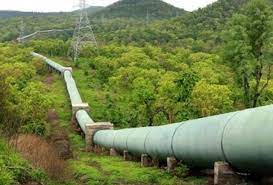

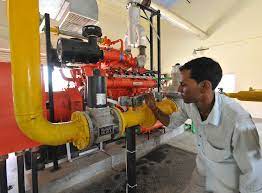
|
|
Indore has replaced the traditional electromechanical equipment of the existing wastewater management system with a solar energy system that has helped in 22% reduction in the energy consumption. The use of clean energy has resulted in the municipal expenditure savings on electricity bills. |
||
| Saharanpur Uttar Pradesh |
||
| Investment grade energy audit |
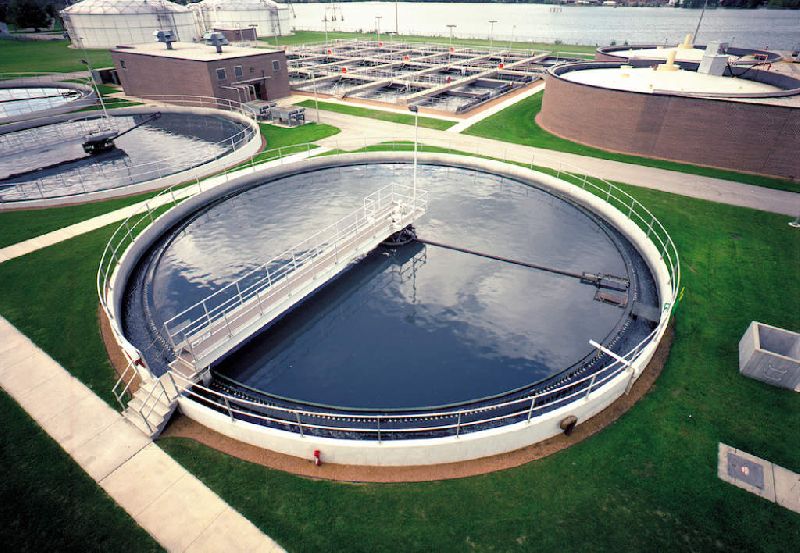
|
|
The city has conducted an energy audit of the waste water management system to carry out a performance evaluation of pump sets. Based on the the energy audit, the overall pump efficiencies for each running pumps of borewells, sewage treatment plant and sewage pumping station have been estimated. Along with estimation of efficiency of pump sets specific energy consumption was also evaluated for pump. The energy saving calculated on the basis of energy audit estimates an energy saving potential of 48%. |
||

We are here
Apart from the above resources, there is a national help-desk which will be operational throughout the assessment period.
You can reach us at: 011-411-86699
from Monday to Friday, 9am to 5pm.
Cities can also email climate-smartcities@gov.in for support.
Done!
Thanks for subscribing. We will send you a notification about the same.Ooops!
Something went wrong. Please try again later.